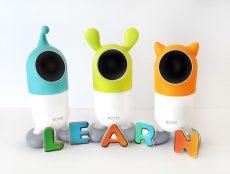
Articles
K-12
Another Study Has Debunked VAK Learning Styles, But There’s a Caveat
By Henry Kronk
December 07, 2018
During the late ‘70s and early ‘80s, educational psychologists Walter Burke Barbe and Neil Fleming began to popularize a theory of educational psychology. They argued that each individual learns in different styles. Some students might respond best to visually-imparted info, others dealt better with hearing someone explain a topic. Others still preferred a spatial, tactile, kinesthetic type of learning. Students are primarily visual, auditory or kinesthetic learners, these psychologists reasoned and fall somewhere into the resulting VAK model.
Most have likely heard some version of this theory before. Studies tend to find somewhere between 90%-95% of teachers believe in the theory and follow its implications in the classroom. Thought leaders across the internet continue to confirm its existence. (“One way to be truly successful in the classroom is to wrap your head around the three different learning styles according to Fleming’s VAK,” writes Thought Co.’s Kelly Roell.) Much work in instructional design of online courses, furthermore, has incorporated Fleming’s model to better serve all students.
Others have gone further, finding evidence that learning style even corresponds with IQ and stress levels.
Learning Styles and Neuromyths
There’s just one issue with the theory: most researchers conclude that no evidence exists to back this theory up. A study recently conducted by a team led by Marietta Papadatou-Pastou a professor of primary education at the National and Kapodistrian University of Athens in Greece, came to a similar conclusion.
To arrive there, Papadatou-Pastou’s team surveyed 199 5th and 6th graders enrolled in primary school in Athens. They then asked students to determine their own learning style and tested them for their IQ. After, they asked teachers to try to determine their pupils’ learning styles. (Each of the 19 teachers surveyed believed in Fleming’s learning styles theory.)
Of the 19, however, only 4 used VAK language to describe learning styles. One of them, for example, responded, “Yes, of course I try to support the students whom I have found out to be visual, auditory, or kinesthetic types with material that I design myself or that I find online.”
The students’ self- and teacher-determined learning styles were then compared to their IQ test results. As the authors write, “No relationship was found between pupils’ self-assessment and teachers’ assessment, suggesting that teachers cannot assess the learning style of their students accurately. Moreover, students’ intelligence was not found to drive teachers’ assessment of their learning style.
“Overall, we posit that identifying preferred learning style can be a hit-and-miss process, with no agreement between the assessment made by teachers and students. We suggest that if the identification of learning styles, as they are currently understood and used within primary education, is unreliable, as evident by the findings of the present study, this should constitute an additional reason why teachers should abandon the use of learning styles in instruction. Our study thus adds to the growing body of literature against the use of learning styles in education. Moreover, debunking the myth of LS as well as educating teachers in the use of evidence-based practices is recommended.”
A Potentially Useful Misunderstanding
While consensus among the academic community has found learning styles to be neuromythical, that doesn’t necessarily mean that belief in them has brought about negative results. Much research suggests that learners learn best when presented with course material and online modules that run the sensory gamut. According to the Yale Center for Teaching and Learning, “Multiple modalities can assist all students regardless of proposed learning style: research shows, for instance, that students learn more deeply from words and visuals than from words alone. Multimedia presentation encourages active cognitive processing, promoting meaningful learning (Mayer 2003).”
So while teachers trying to individually personalize learning by catering to each students’ perceived learning style won’t likely result in positive outcomes, allowing for visual, auditory, and kinesthetic learning for every learner will likely benefit the whole class.
Read the full study here.
Featured Image: David Pisnoy, Unsplash.









[…] letters, and stories, teachers can use technology to practice content while they are playing. Smart speakers such offer gamified learning opportunities on how to spell words and how to count. Those games are endlessly repeatable and they motivate […]
[…] letters, and stories, teachers can use technology to practice content while they are playing. Smart speakers such offer gamified learning opportunities on how to spell words and how to count. Those games are endlessly repeatable and they motivate […]
[…] letters, and stories, teachers can use technology to practice content while they are playing. Smart speakers such offer gamified learning opportunities on how to spell words and how to count. Those games are endlessly repeatable and they motivate […]